Your cart is currently empty!
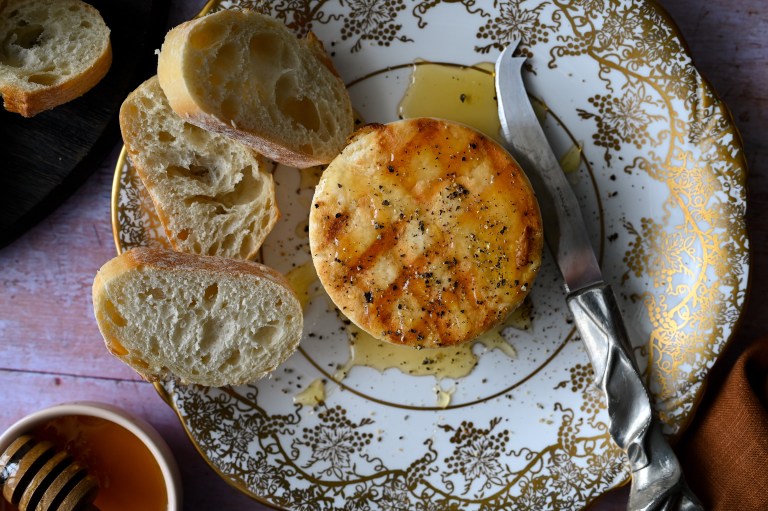
Thanks for sharing!
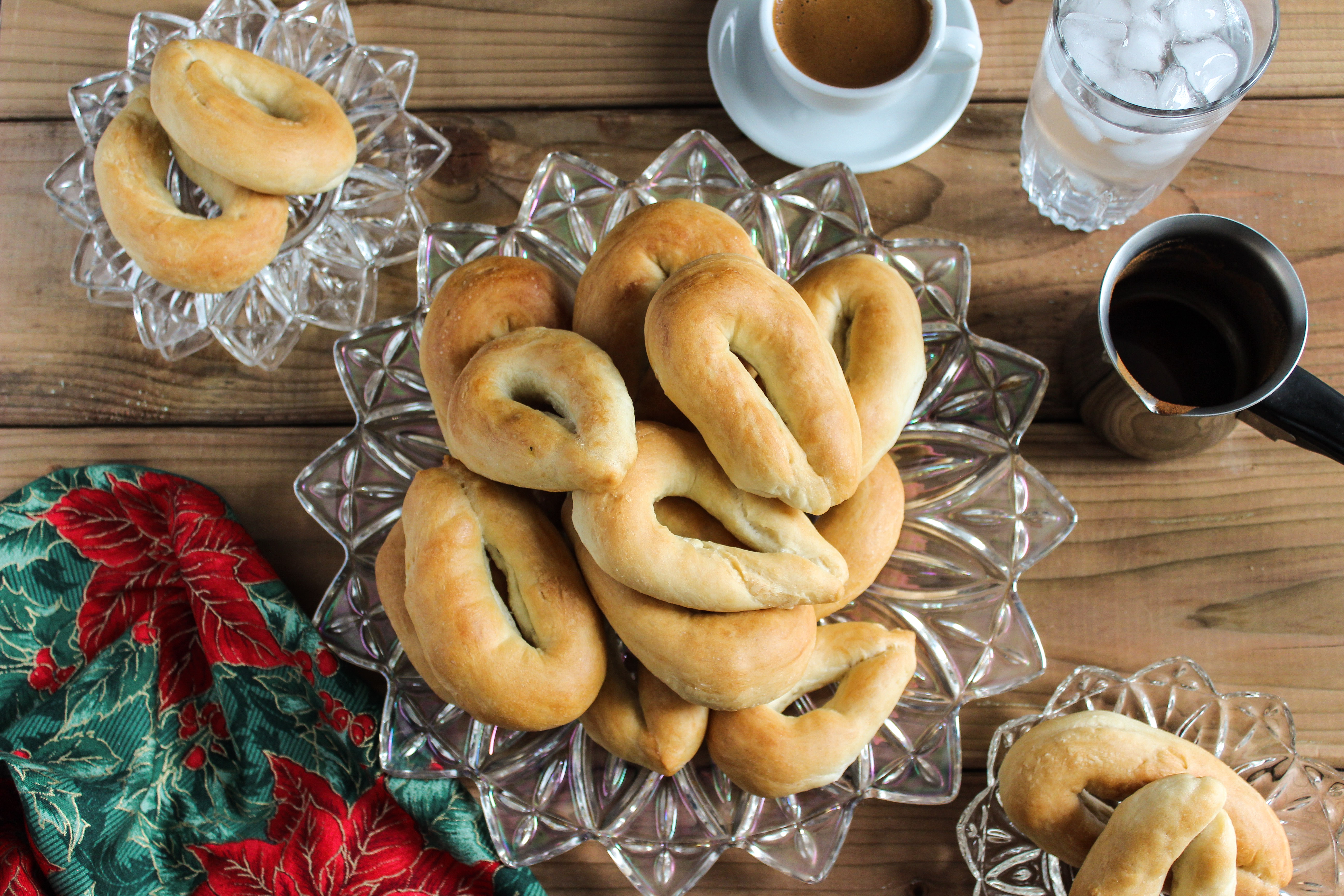
Savoury Christmas koulourakia
Much of the beauty of Greek cuisine is that it varies from region to region. In part this is due to agricultural possibilities (think mountainous landscapes versus islands surrounded by the sea), connections with other cultures, and local customs and traditions. Every recipe tells a story, and offers a glimpse into the rich web of history, both cultural and culinary, that makes Greece and Greek food such an important and fascinating area of study. Although many of these unique regional dishes are well known (think kalitsounia from Crete or lalagia from Messinia), others are so local that they are known only to isolated villages. The recipe which we are sharing here is one such example.

Unless you come from one of the small villages in Messinia near where our parents grew up, you have probably never had these Christmas koulourakia. Both of our parents however grew up eating these when the Nativity fast started, as they contain no dairy and no eggs. As we were baking these with our parents most recently, our mom told us that every year her mother and aunts would gather into the home to spend the day making tons of these koulourakia, which are really more like round breadsticks than the sweet cookie you usually expect when you hear the word koulourakia. They would use the orange peels from the oranges which grew on their property, olive oil from their olive trees, flour that they produced in their mill and other simple ingredients which they had on hand; all coming together to create a unique and flavourful koulouraki.
Because these Christmas koulourakia contain yeast, there is time which needs to be set aside for rising of the dough. The first rising is after mixing all of the ingredients together, and the second rising is after the koulourakia are shaped and before baking them. Our mother remembers that with their small kitchen, this second rising meant that shaped koulourakia were spread out on clean table cloths laid across all the beds in the home. A great and practical idea except for the one time that her uncle came in after a long days work and plopped himself on the bed, too tired to realize that he had just ruined hours worth of work. Fortunately for him, everyone was already in the Christmas spirit!
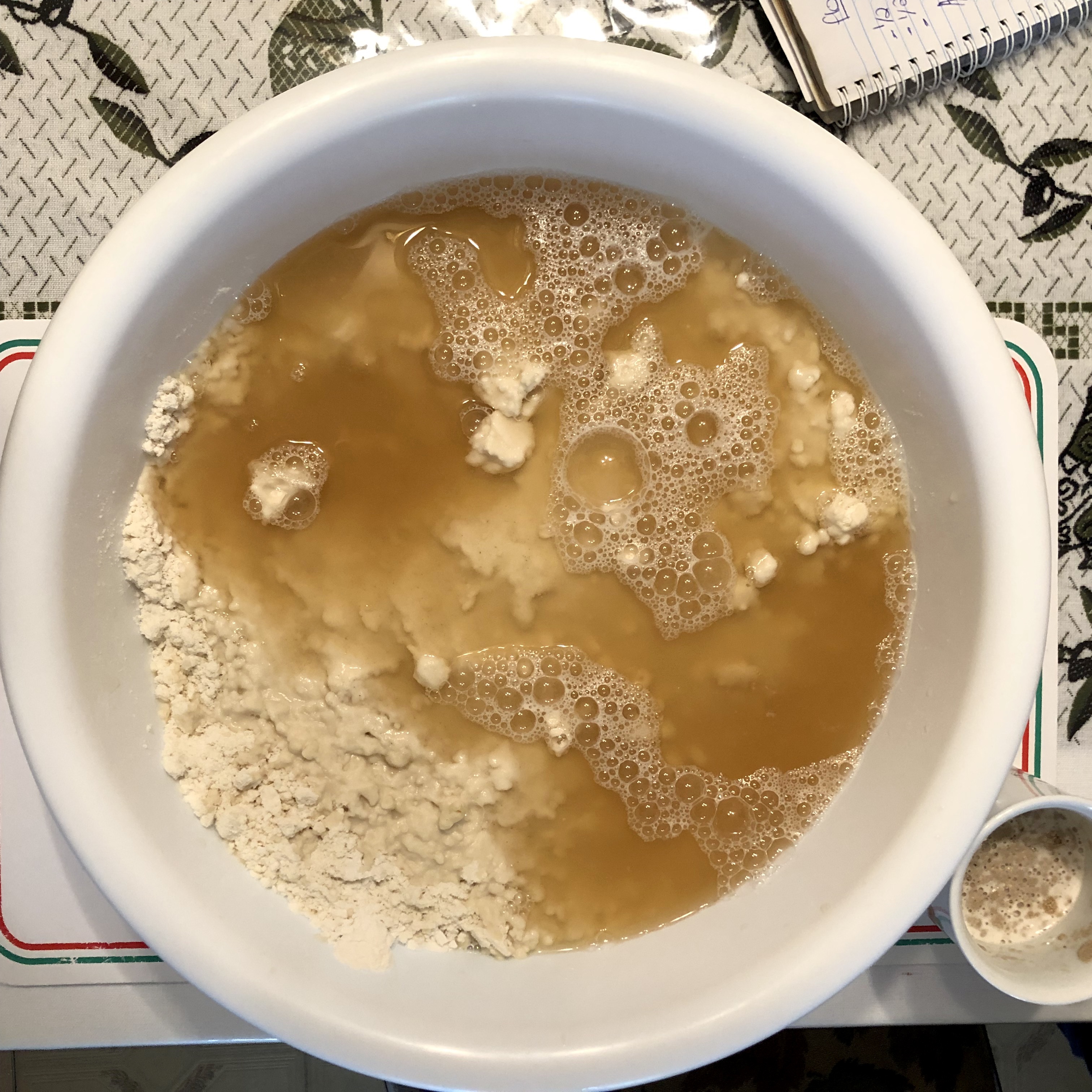
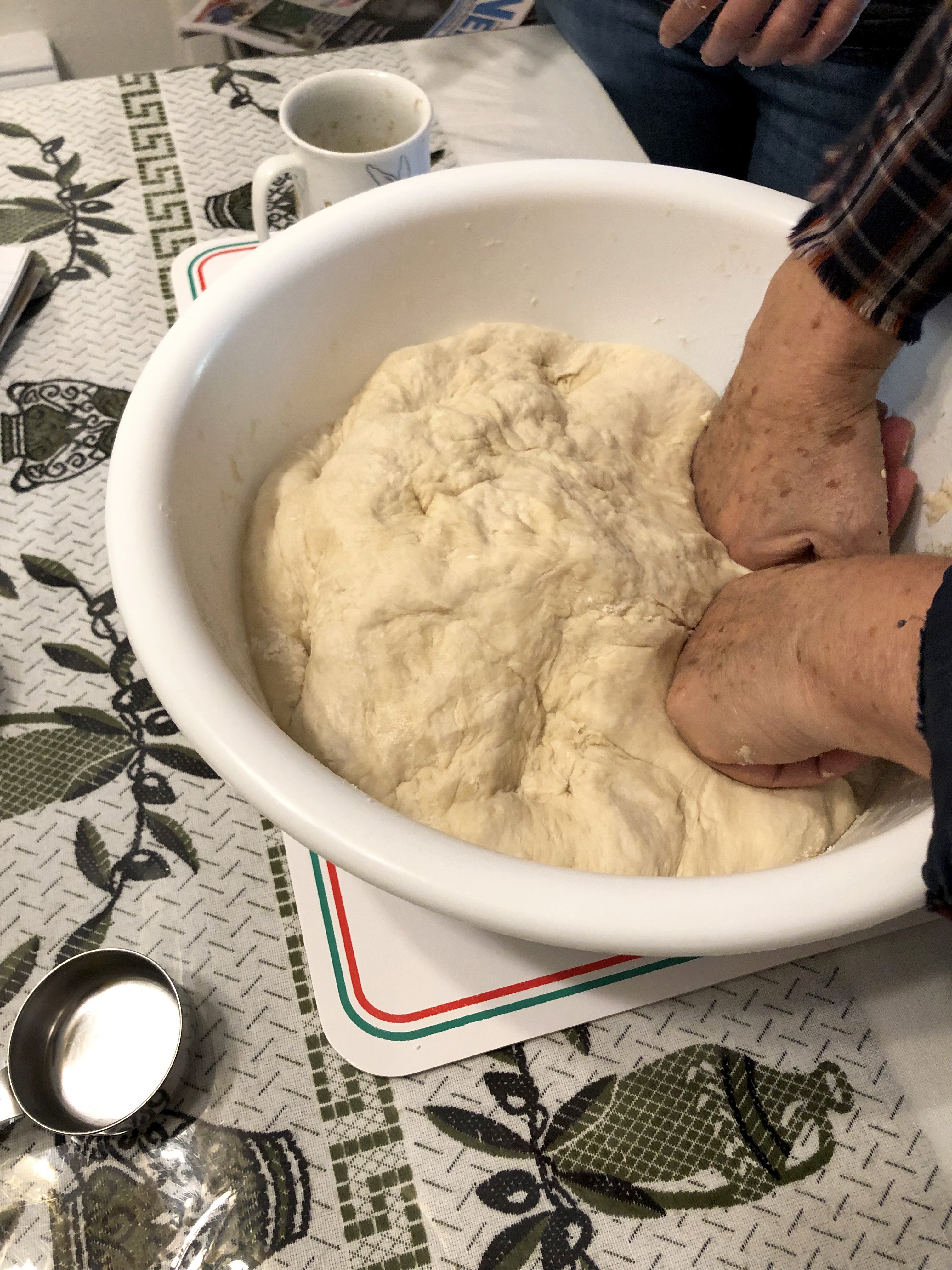
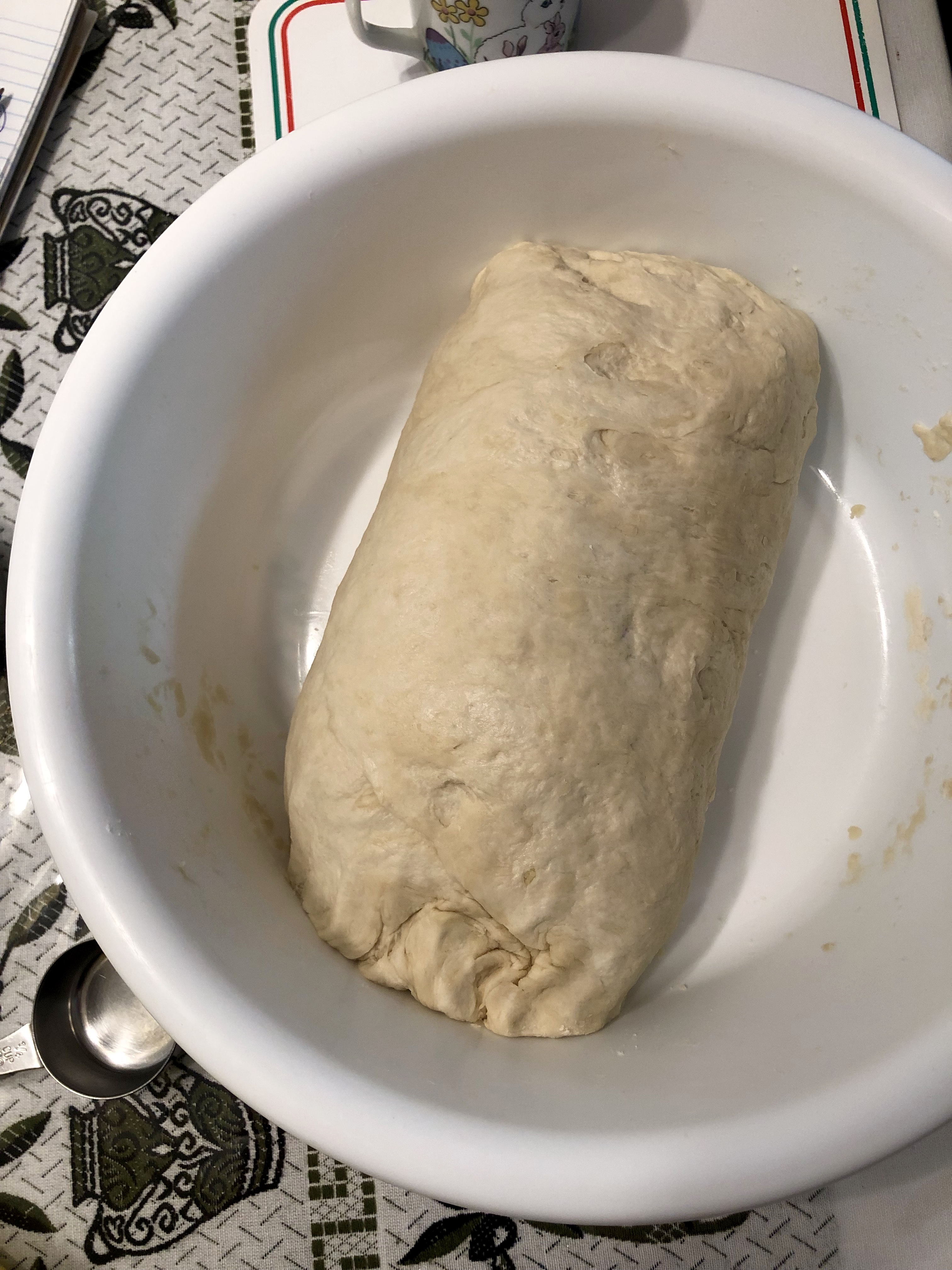

Helpful hints
It is a very good idea to read this recipe carefully before you set out to make these Christmas koulourakia. There is a bit of prep work which needs to be done, including preparing your flour the night before.
When oranges are in season, our parents like to dry orange peel to preserve it and to use it in recipes such as this one. You can learn more about how they do that here, but if you don’t have dried orange peels, don’t worry, fresh peels will work just as well.
When you combine the liquid you will prepare with the yeast, the liquid should be warm. This helps to activate the yeast but be careful; if the liquid is too hot it will kill the yeast and you dough will not rise. The best way to test the temperature is to put your clean finger in the liquid; it should feel hot, but comfortable enough for you to leave your finger there.
When reading through the recipe you will see that it calls for a total of 4 cups of liquid; you are asked in the ingredient list however to prepare 4 1/2 cups of liquid. That extra 1/2 cup is there to be available in case you need to use some of it to get your dough to the right consistency because types and brands of flour, altitude and precipitation levels all impact dough making.


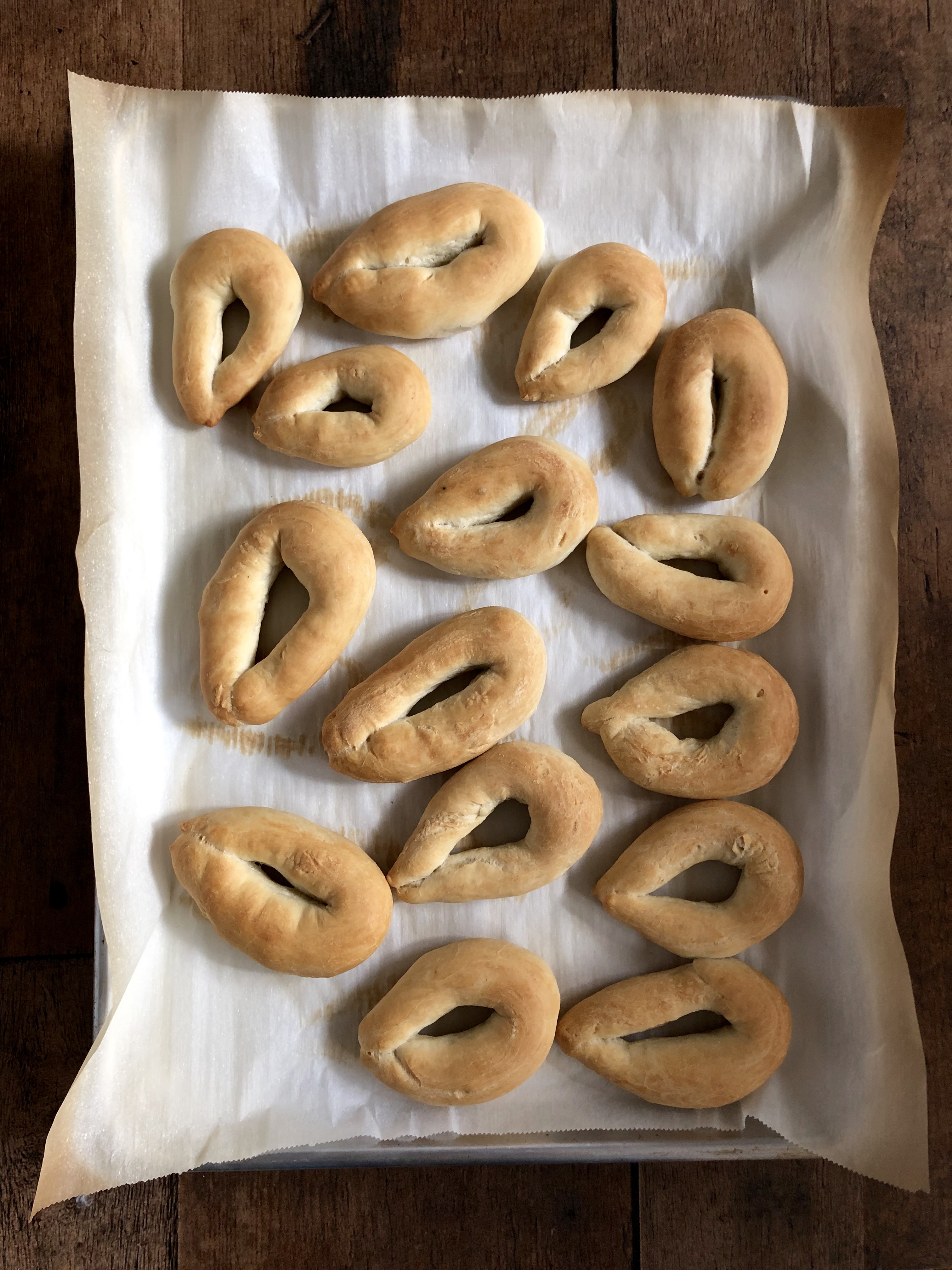
As mentioned, these are not sweet cookies. Indeed, they are savoury and much more like breadsticks. We love to dunk these into a nice warm bowl of fakes, or chickpea soup. They are equally good on their own, and if your diet permits, go great with feta.
Kept in an air tight container, these Christmas koulourakia keep very well for a couple of weeks at room temperature. Alternatively, you can keep them in the refrigerator where they will stay fresh even longer.
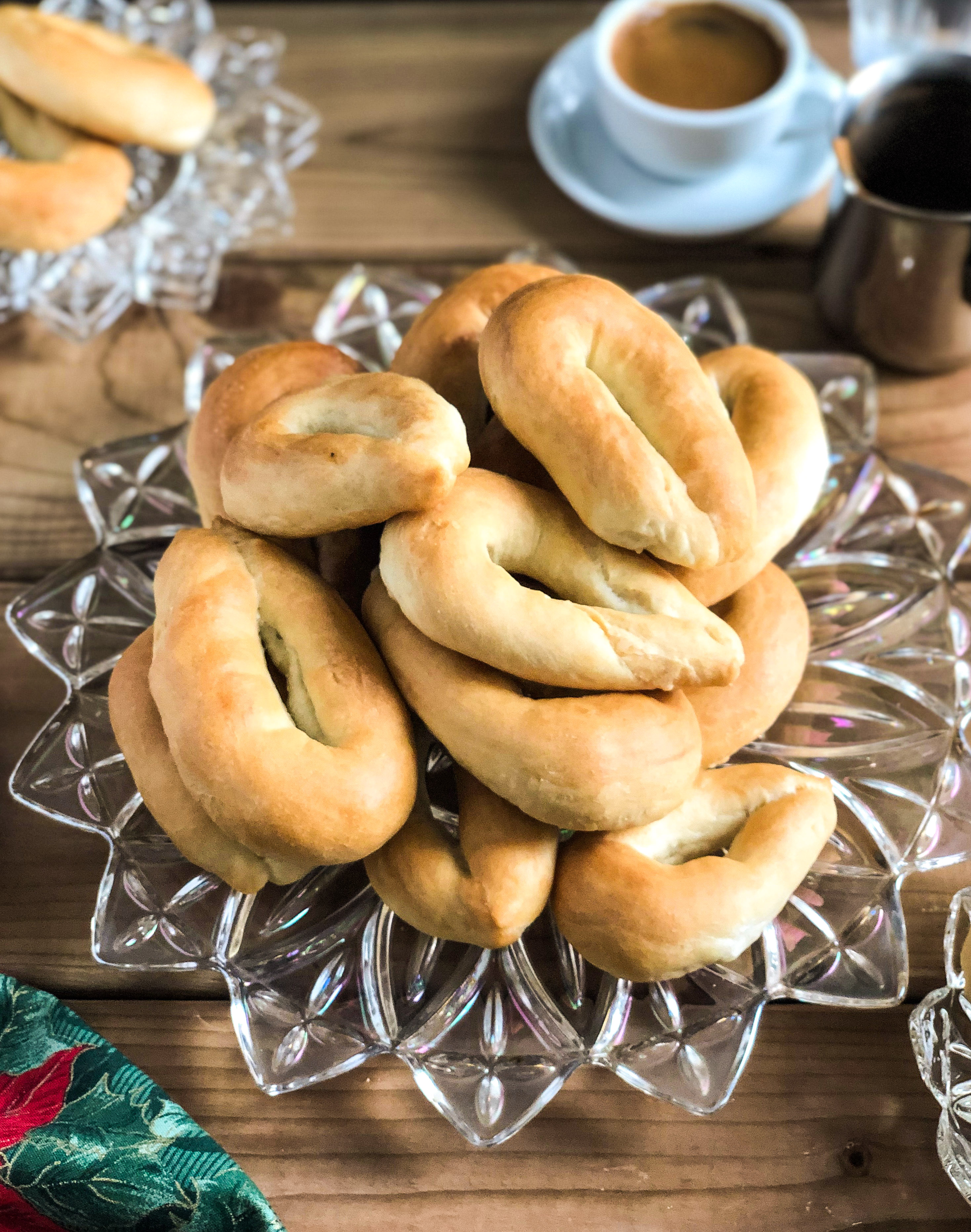
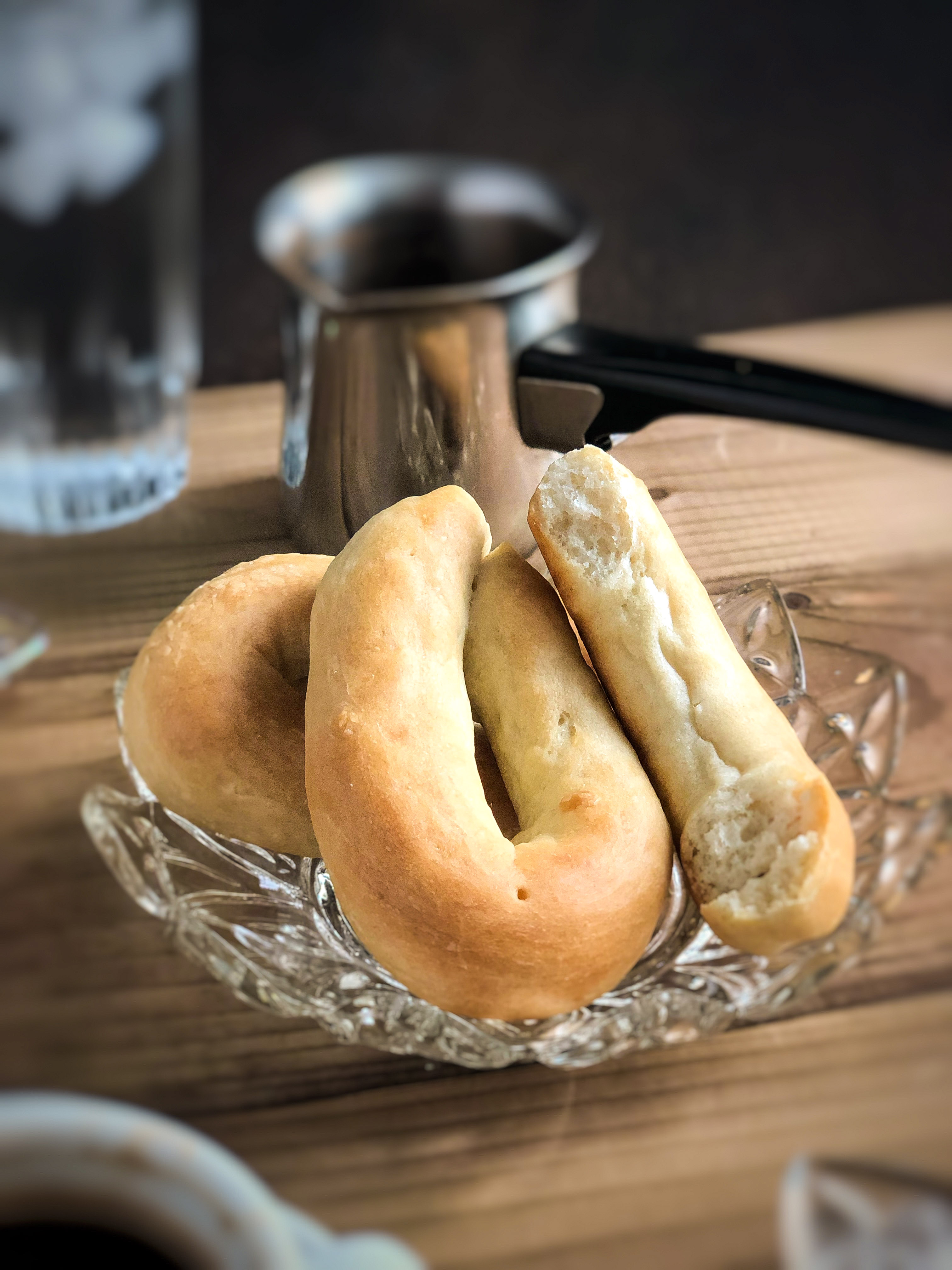
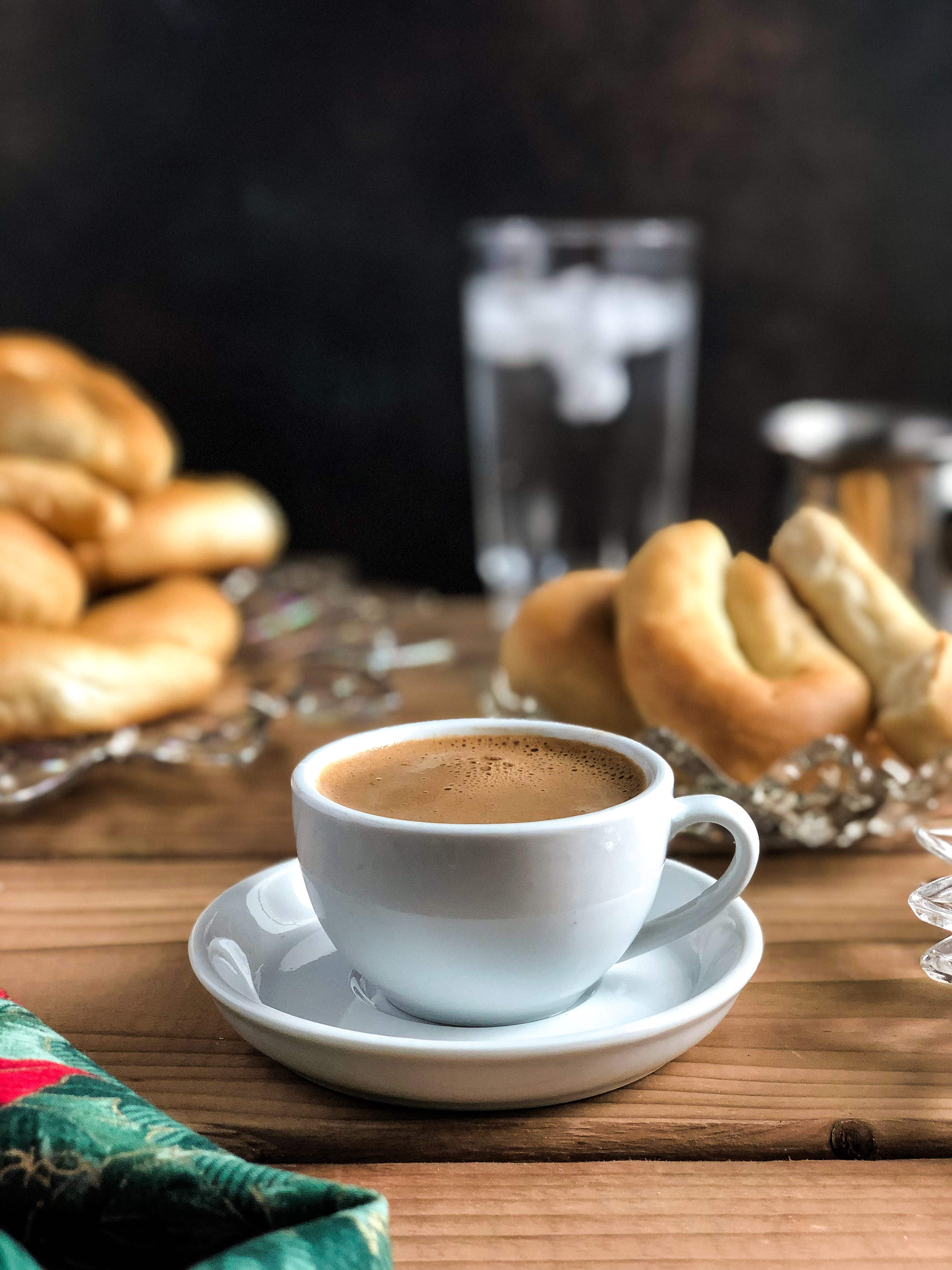
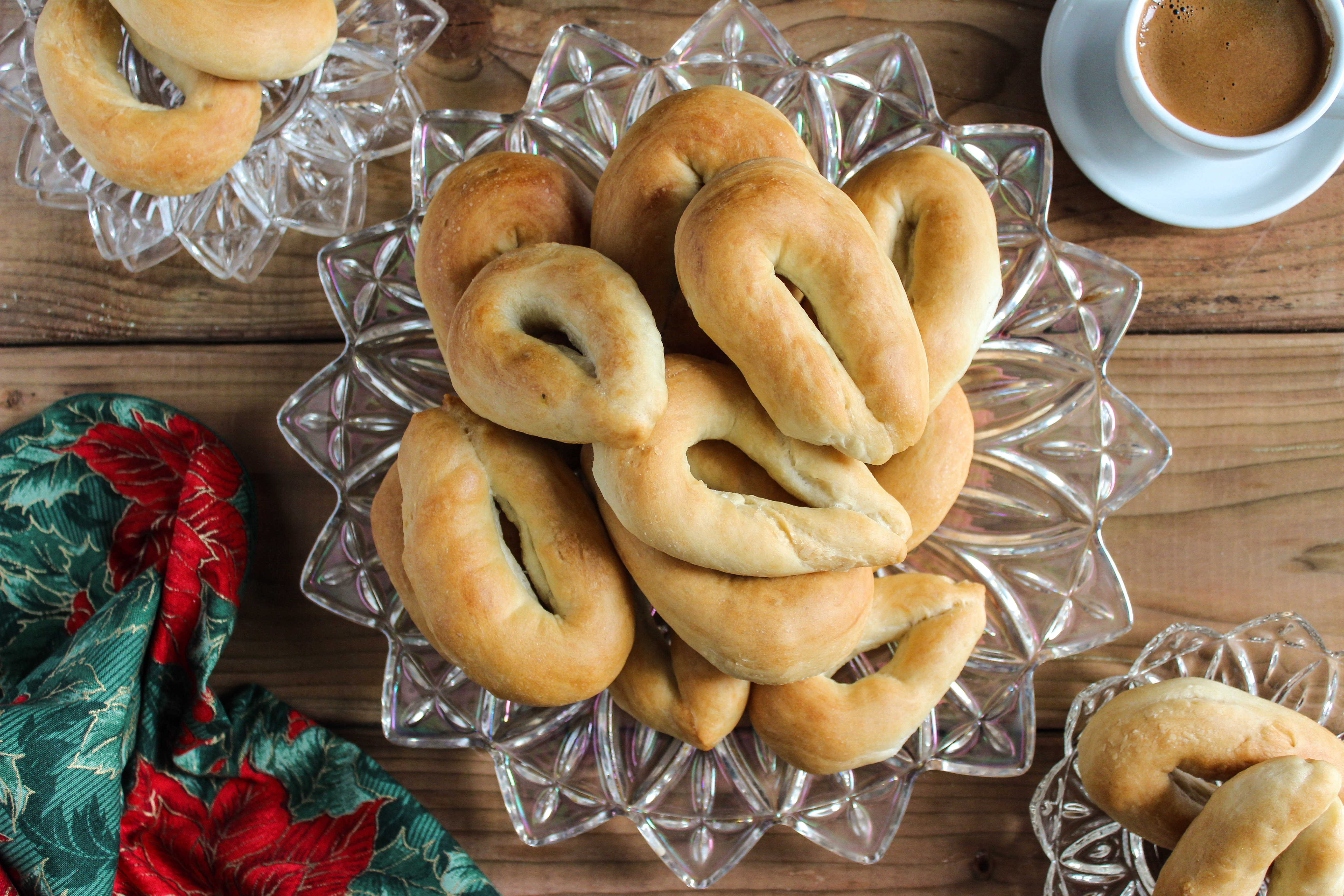
Follow my blog with Bloglovin
Hi Phillip. Egg washing would provide a nice colour to the top of the koulourakia. We don’t do this because traditionally these are lenten koulourakia (meaning that they are fine during periods of Orthodox lent which does not allow for eggs, dairy, meat). If fasting is not a concern, then by all means, add the egg wash 🙂
FEATURED CATEGORIES
THE STORY BEHIND MIA KOUPPA

If you cross the Harvard Bridge in Boston and happen to be with a tour guide, you will learn that in the late 1950’s MIT student Oliver Smoots came up with a unique unit of measure as part of a fraternity pledge. By lying head to toe across the bridge, Oliver determined that its length was 364.4 Smoots.
TRENDING RECIPES
SAVEUR BLOG AWARDS

Subscribe now to keep reading and get access to the full archive.

Leave a Reply